What does “Analogue” Mean to You?
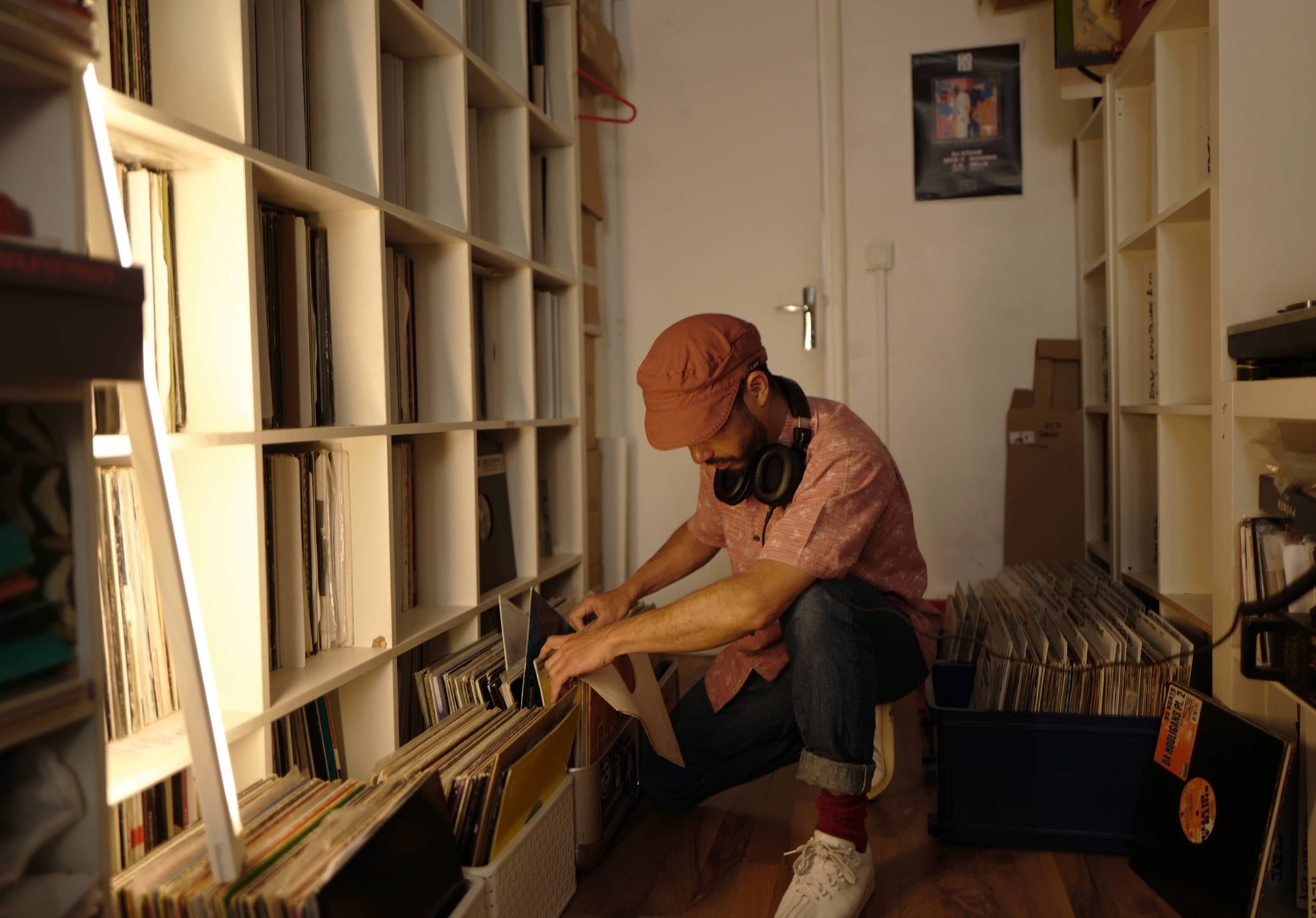
Profile
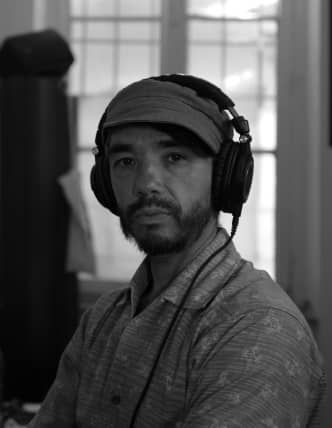
Nick V
A reputed record collector and vinyl digger, he is an all-vinyl DJ relying on smooth but dynamic mixing technique to build his sets around the classic House music sound, often incorporating a blend of other genres such as Disco, Deep Techno, Broken Beat, Boogie and Dance floor Jazz. He manages 22tracks Paris, curates the Deep House and Global Sounds playlists and is also a freelance architectural acoustics consultant and Tai Chi / Viet Vo Dao instructor.
“Today DJs are at the center of dance music culture so we decided to shift the focus of our party over to the crowd and the dancers.” Parisian’s favourite party, La Mona’s founder/DJ Nick V talks about his party, vinyl and sound.
01
Analugue is...
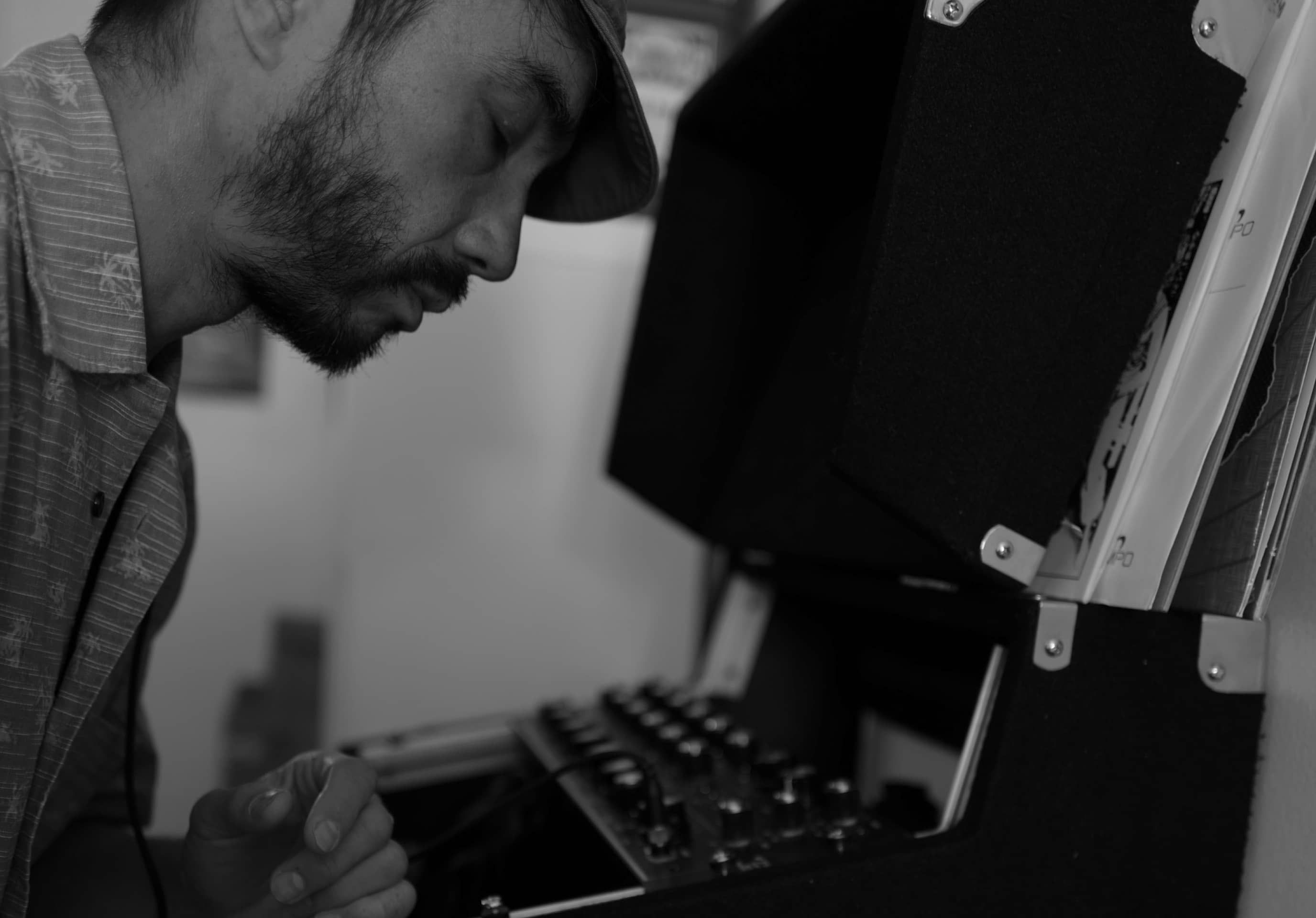
The idea was always to mix different crowds and this is still the concept today.
Your monthly party, La Mona, recently turned 9! How does it feel?
It still seems like it started yesterday, but I can tell it’s been a little longer from the white hair on my head! Mona started as a party organised between different groups of friends coming together, the idea was always to mix different crowds and this is still the concept today, an open space for people from different walks of life to feel comfortable in. Today DJs are at the center of dance music culture so we decided to shift the focus of our party over to the crowd and the dancers. This is certainly the reason we have lasted so long, building a party around the sole reputation of it’s DJs or music policy simply isn’t enough. Free dance classes are given at the start of each party where the crowd can learn Voguing, Waacking or House dance and we regularly host dance contests, in a similar way to Vogue Balls. The party always continues into the night like every other party but the energy and the vibe that dance conveys can be felt all the way through.
02
The Beginning

As vinyl is more expensive, I buy less music nowadays but I feel it much more.
You are playing — and collecting — vinyl. What do you like about this medium?
I love playing vinyl but I don’t entertain an exclusive relationship with records, I also play digital files. I prefer to use vinyl for the sound and the feel which really influence my DJing physically: picking a record, looking at it, spinning it. When digital DJing arrived, I was one of the first in my DJ friend circle to embrace it. I really enjoyed making loops and the easy cueing, but after a few years my DJ sets seemed less exciting to me. I realized that my relationship to music had changed. I was buying far too much music and wasn’t able to keep up with it, the tracks I was playing came and went without making much of a mark. So I decided to go back to playing vinyl. As vinyl is more expensive, I buy less music nowadays but I feel it much more.
Do you think the public cares?
I don’t go for the vinyl Vs digital debate and every DJ has their own personal recipe to make their crowd move. However vinyl has become quite a “romantic” object over the years and because of this the crowd has become increasingly receptive to a DJ that plays vinyl. But regardless of the medium if you want to make a crowd sweat as a DJ you have to work hard!
03
About Music Creation
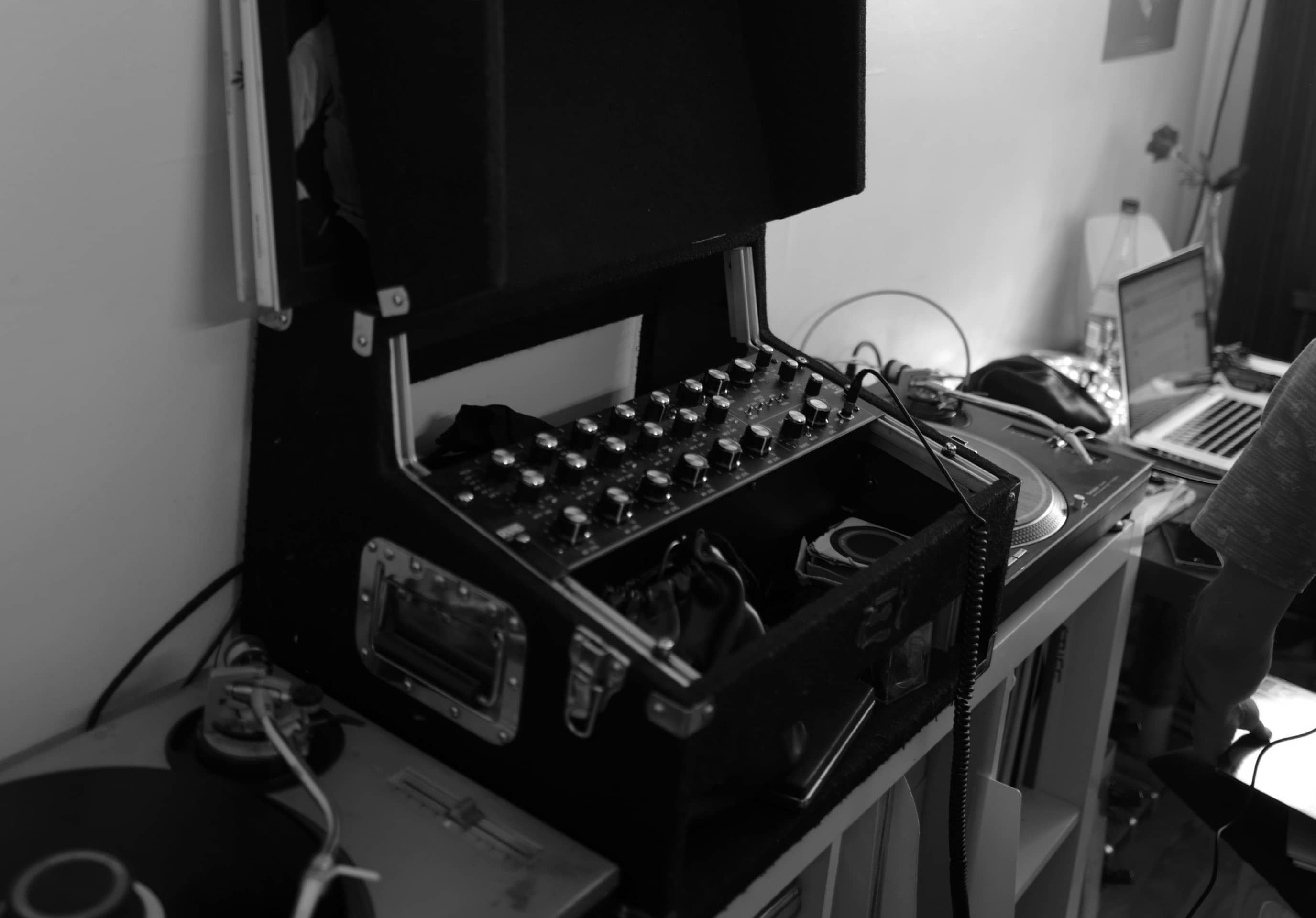
It’s an engineer’s job but involves an architectural “seventh sense” as you need to be able to feel how sound and vibration travel in and through buildings and structures.
How the quality of the sound can affect the way a club event can go?
Sound quality is primordial for the success of a club event. The better the quality, the better the experience for the dancers. However achieving this is quite a task and can prove costly. As a DJ, I feel it’s important to make sure you can get the best out of the set up you are playing on by soundchecking and exchanging with the sound technician regularly (when there is one). But there’s only so much you can do and often the conditions aren’t optimal, in that case I also feel it’s important not to focus too much on sound quality and to keep the vibe flowing. I’ve also had some great nights on terribly poor setups.
In addition to being a DJ, you are also an acoustician. What does it consist in?
I worked in an acoustics consultancy company for 18 years as an acoustics engineer, mainly in architecture and building, helping achieve acoustic comfort (room acoustics, noise insulation and noise control) for projects such as offices, cinemas, hotels, studios or dwellings. It was a great experience and it was amazing to be in the construction industry and to see things get built.
What attracted you to this field?
I was already a DJ when I was a student and I wanted to work with my ears in another way. I was lucky to work partime which helped me maintain my DJing over the years. After a while my DJing jobs got bigger so I decided to go full time in music. I still do some freelance acoustics consultancy today mainly for studios, bars and clubs.
How do you train your ears for such a job?
You don’t. I went to a university course and then got a job like many people do. It’s an engineer’s job but involves an architectural “seventh sense” as you need to be able to feel how sound and vibration travel in and through buildings and structures. This is not something you learn at school, rather through experience, by carrying out acoustic measurements and also by closing your eyes and listening.
What’s a “good sound”, technically speaking?
In a closed environment a good sound system is very important, but it means nothing without good room acoustics. The two go together hand in hand. Most club owners believe that they will have the perfect sound if they invest in an expensive sound system, which is nonsense and a waste of money if they don’t make sure that their room acoustics aren’t at least reasonable. This means controlling sound reverberation on walls, eliminating echos and making sure the sound level is evenly distributed around the room. There are some simple ways to make this work, and achieving reasonable room acoustics isn’t always expensive, it involves choosing the right materials (wood, felt, fiber glass wool …) and setting them up correctly (with or without a cavity, positioning the surfaces in the right places…). Rotary mixers, turntables, cartridges and sound systems are really only one half of the picture.
What does the word “analogue” mean to you? What is the first thing that comes to mind when you hear it?
Even if I think of machines, I think of something organic that can go out of control, like a robot that has it’s own mind. I think of mistakes that can become masterpieces. That’s analogue.
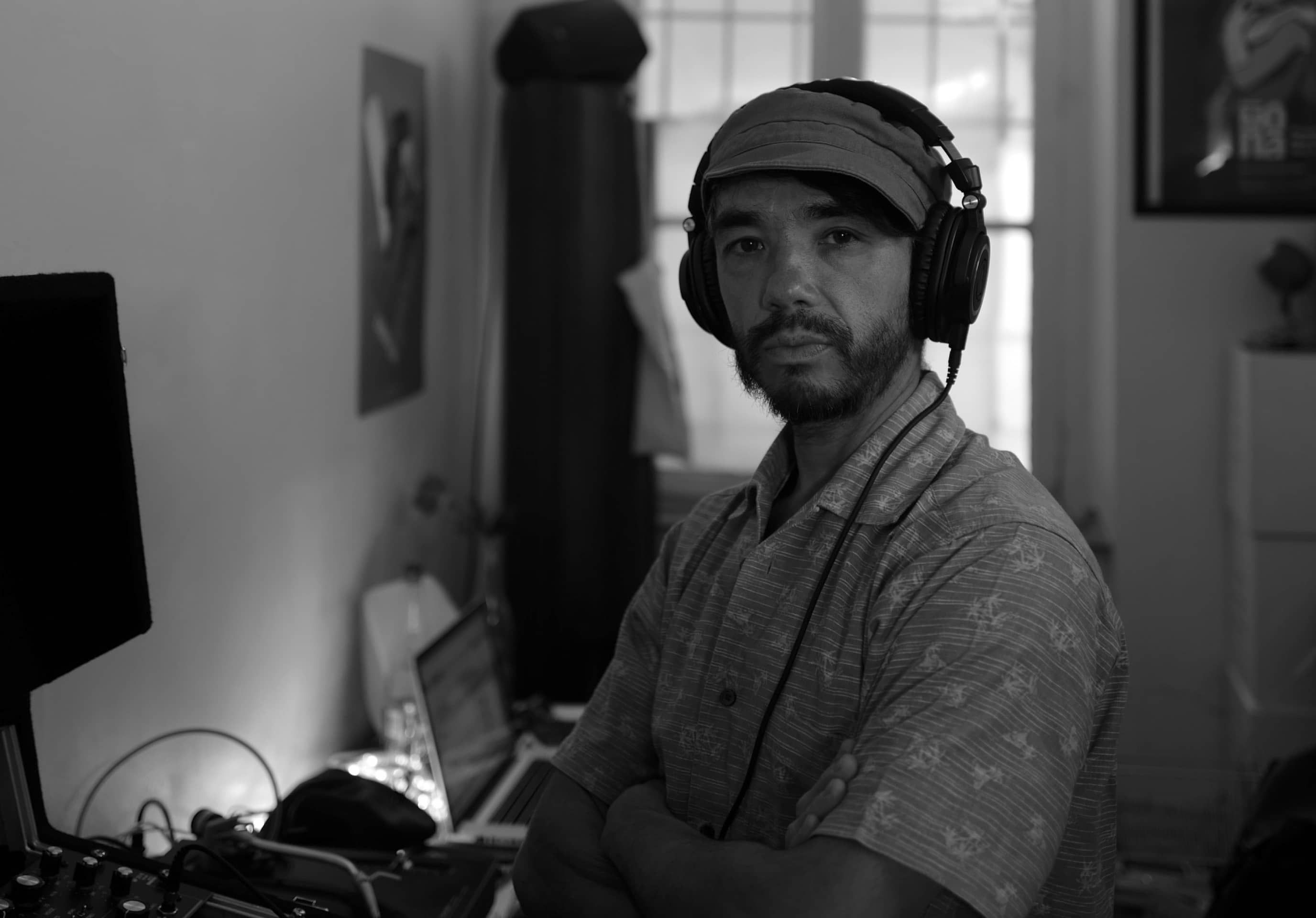
Words: Antoine Carbonnaux
Photos: Jean-Philippe Lebée
Next Voice
What does “Analogue” Mean to You?
Orpheu The Wizard
“The main thing is the love for music and trying to share that, which is nothing new.”
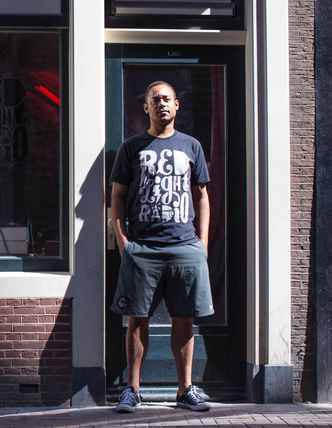
Musically curious and invites his audiences to be so too.
